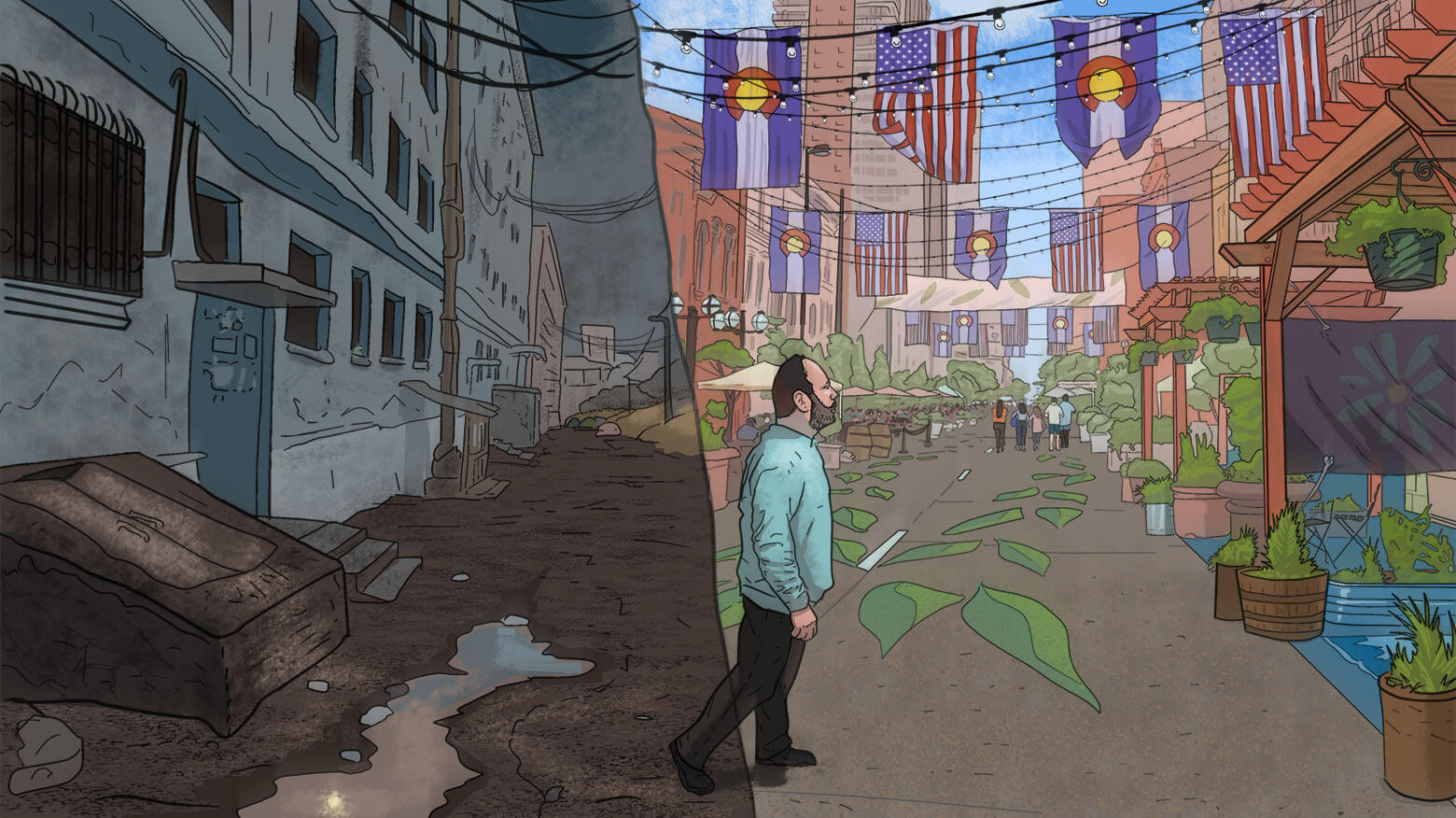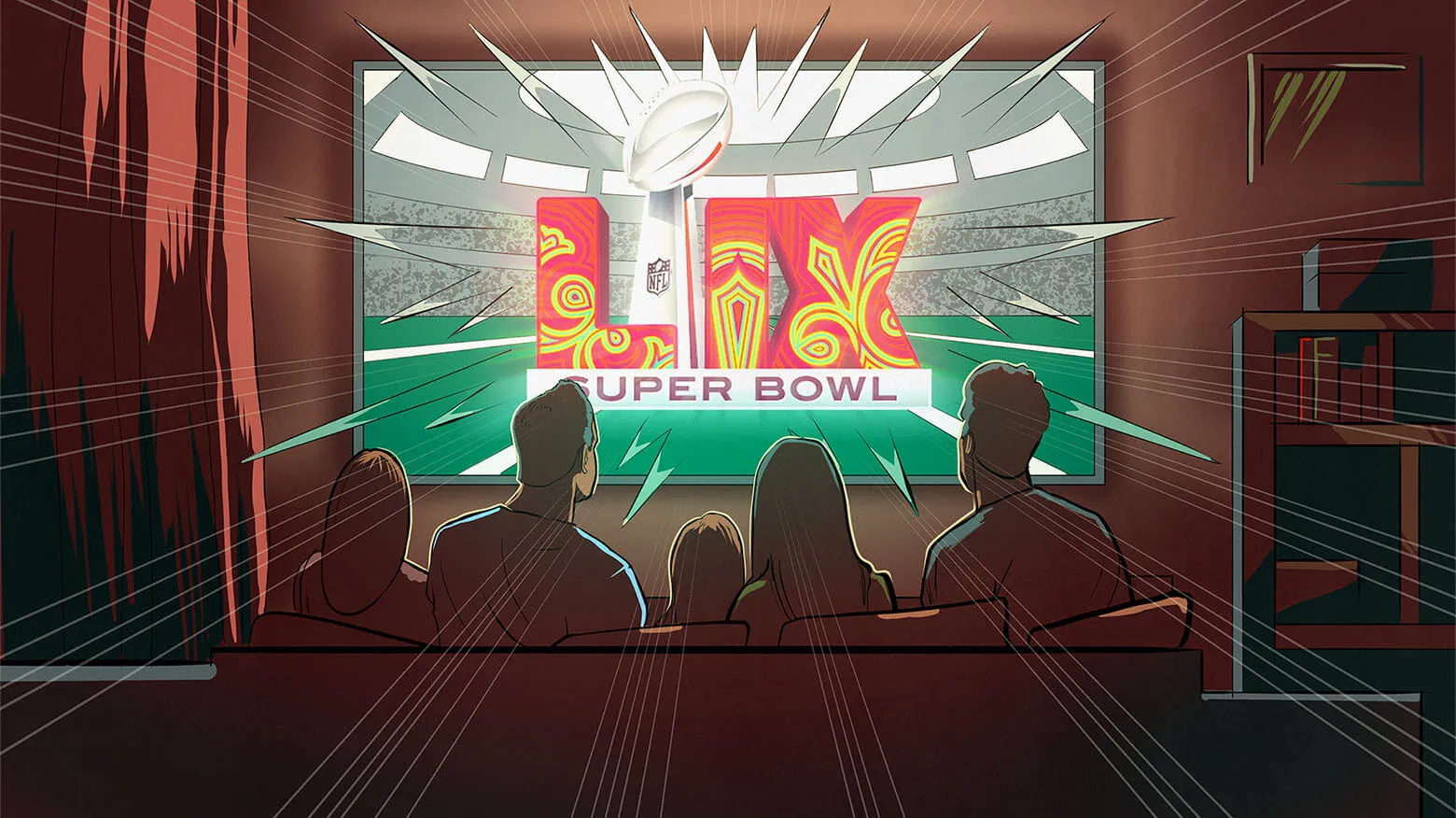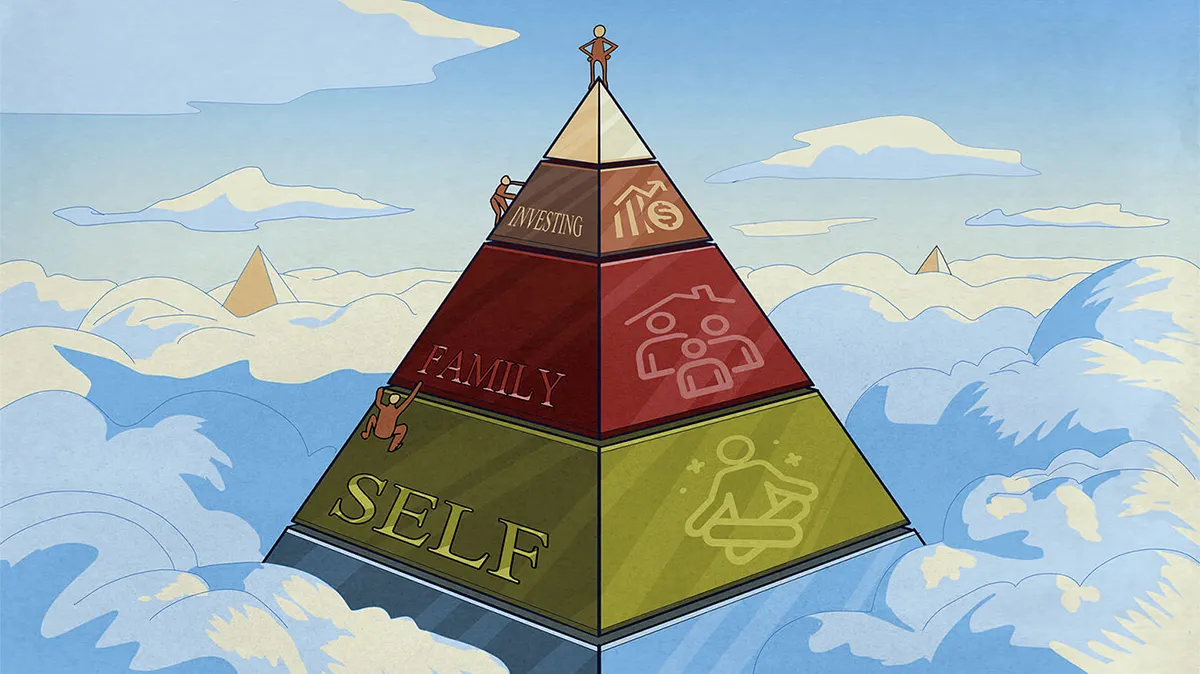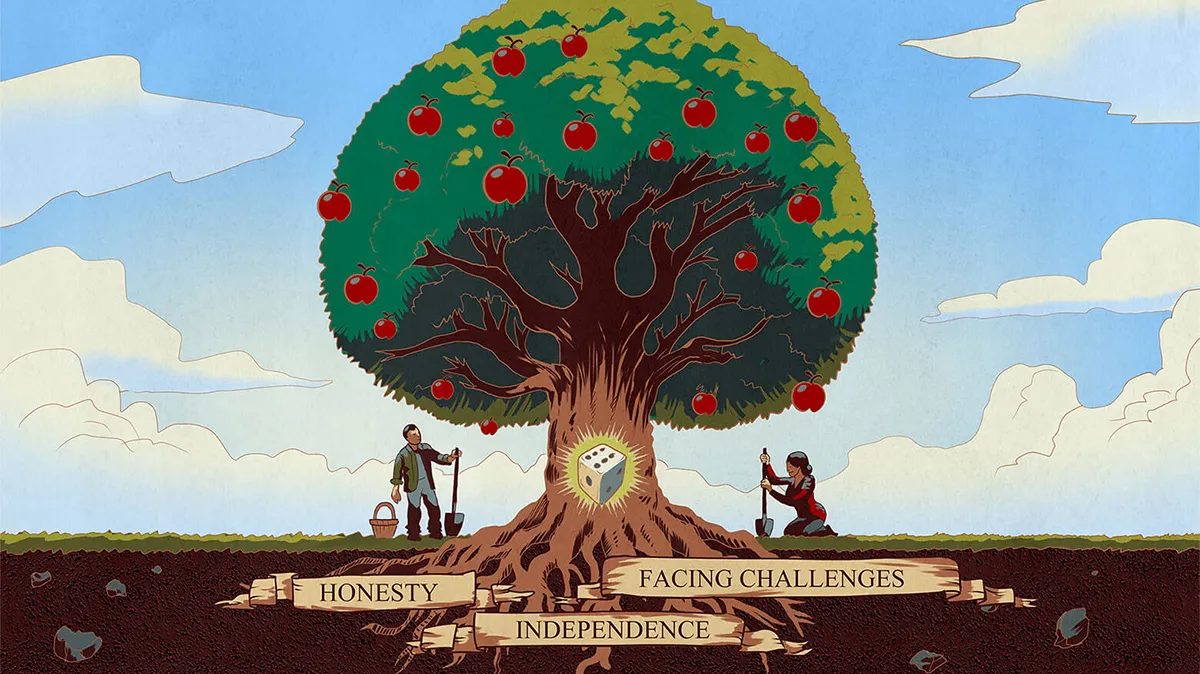I spent my youth in Murmansk, a city in the northwest part of Russia, located right above the Arctic Circle. Murmansk owes its existence to the port that, due to the warm Gulf Stream, doesn’t freeze during the long winters, providing unique access to Russia from the north. During the Cold War, Murmansk’s coordinates must have been on the speed dial of the U.S. military, as it is the headquarters of the Russian Northern Navy Fleet. Fans of Tom Clancy’s The Hunt for Red October may remember Murmansk as the home base for the submarine Red October
The city revolves around its port, and its academic institutions are geared toward producing a workforce for the fishing and merchant marine industries. It was always assumed that I’d attend either the Marine College or the Marine Academy. Both were semi-military schools where the students (cadets) had to reside in dormitories, wear navy uniforms, follow strict military-like rules, and take orders from navy officers (and ask no questions).
Russia has a draft army. It is not concerned about recruiting and thus treats its soldiers very poorly (an understatement). The pay is only high enough for soldiers to afford the postage to write home asking for money. Russian youth look at serving in the Russian army as akin to a two-year prison sentence (at least when I was there). The army avoidance in the late 1980s was not about fear of death, as the war in Afghanistan was over, but came from the dread of losing years of one’s youth and the dismay of humiliation, as the older soldiers commonly abused the younger ones. My very sane friend entered a psychiatric institution and faked mental disease just to avoid serving in the army.
My father and both of my older brothers graduated from the Murmansk Marine Academy. My father, a PhD, also taught electrical engineering at the academy for 27 years. Neither my brothers nor I had any dreams about being seamen. Quite to the contrary, my oldest brother could have been a philosopher (now he is a technology engineer); my other brother wanted to be anything but an electrical engineer (he is now a successful real estate broker in Denver). Our choices were limited: either attend one of these two semi-military schools or join the Red Army.
By the time I was finishing eighth grade, the law had changed: Cadets from the Marine Academy lost their draft exemption, but college cadets were spared. I enrolled in the Marine College and dreaded every moment I spent there, but the alternative was even worse.
Aunt in Siberia
My father has two younger sisters; one lived all her life in Moscow, while the other moved with her family from Moscow to Siberia in 1979. For a long time I wondered why my aunt and my cousins in Siberia never visited or called us. It seemed so uncharacteristic of our family, who were always very close. In the summer of 1988 my father finally told me that my aunt did not really move to Siberia — she immigrated to the United States of America. My immediate reaction was resentment toward her. The first words out of my mouth were “traitor” and “spy.”
It sounds a bit silly now, but you have to understand I was a child of the Cold War. A couple of times a month my class walked to the movie theater (this was before VCRs) and watched propaganda documentaries about decaying capitalistic America, infested with the homeless, where black people are lynched, the poor are exploited by the rich, and people are poisoned by hamburgers (later, of course, I learned that the part about hamburgers was not a complete lie).
Russian movies showed Americans as evildoers, usually spies whose single goal in life was to destroy Mother Russia — the whole country was brainwashed. When I was nine years old, I attended a pioneer camp and went on a field trip. A foreign tourist, mesmerized by my smile and internal beauty (okay, that is just a wild guess), gave me bubble gum. My camp teacher, in horror, took it away, yelling that I was lucky to be alive as it was probably poisoned.
My father was not at all surprised to hear the words “traitor” and “spy” come out of my mouth. He calmly explained that despite being well educated, his sister’s family had lived in poverty because they had faced the invisible anti-Semitic wall that is so often encountered by Jewish people in Russia.
He also explained that he hid the truth about my aunt’s whereabouts from us because the consequences of the truth leaking out to local authorities would have been dire. My mother and he could have lost their jobs, and my brothers and I would never be permitted to leave the borders of the country, which for (future) seamen would have been devastating. In fact, his sister who stayed behind was demoted due to my aunt’s departure for the United States; she was deemed guilty of betrayal by association.
Shame of Being Jewish
Though my parents always tried to shield us from anti-Semitism, I was often made aware that there was something wrong about me being Jewish. Even as a little child I often encountered a second-class-citizen attitude toward me.
Nationality was a mandatory line in Soviet passports and was a required disclosure on every application. When I was seven, my parents, hoping that I had a hidden music talent (I didn’t), signed me up for singing lessons. While filling out a standard application, the teacher asked me the usual questions: parents’ names, address, phone — and then nationality. I vividly remember being filled with shame, while staring at the ground, when I said, “Jewish.”
Russia was not South Africa under apartheid regime; there was no formal discrimination and segregation towards Jews. Though Stalin was going to send all Jews to the Far East, fortunately his timely death interrupted that endeavor. I’d be lying if said that we constantly felt anti-Semitism in Russia; we did not. It had sporadically touched parts of lives; some people were impacted more than others.
We were impacted even less by discrimination than most. Murmansk was a city of immigrants, a melting pot that came to life for the most part in the 1960s and 1970s. My father moved to Murmansk in 1952 from Moscow. Despite tutoring other kids in math, he failed the math admission exam in Moscow University. Of course, the real reason for failure was his “wrong” nationality; he actually aced the exam. Murmansk Marine Academy at the time could not afford to be choosy — Murmansk was in the middle of nowhere and accepted anybody who showed up.
I always thought of being Jewish as a nationality. Until my late teens I never related being Jewish as a religious identity. My parents and grandparents were not religious. The premise behind all organized religions was “debunked” by teachers at school in Soviet Russia from first grade forward. I don’t think “the God doesn’t exist, it is all a mass delusion” lecture was on the curriculum, but it sounded consistently the same from all teachers. My father says my teachers were just a product of their environment; he is probably right.
Come to think of it, I did not know a single religious person of any religion. My parents had a lot of Jewish friends which for the most part were either teachers, scientists or doctors, and none of them were religious. In reality, the Soviets just substituted one religion for another. They wanted to have a monopoly on the real estate in one’s brain that controlled one’s life goals and ambitions, and they did not want to share it with other religions.
Coming to America
After the glasnost reform (transparency, openness) of 1985, the decades of brainwashing were slowly supplanted by the truth. In the late 1980s few people could afford VCRs, but little VCR movie theaters were popping up in basements of an apartment buildings everywhere, comprised of several TV sets hooked up to a VCR. Unlike state-owned theaters, they were not censored and had the freedom to choose their repertoire. Picture and sound quality were terrible, as VHS tapes were copied dozens of times before they made it into a VCR. Movies were dubbed by one monotone voice that translated all characters. But none of that mattered; we were hungry for variety, and American cinema was it. After watching hundreds of these flicks, it became painfully obvious that America and capitalism were not so rotten after all, and despite what my camp teacher told me, Americans did not really have any intention of poisoning little kids.
Just a few years earlier it would have sounded absurd, but after my “Siberian” aunt’s invitation in 1990, we decided to immigrate to the United States. My father saw no future for us in Russia. On December 4, 1991, we landed in New York City. Our new and in many ways harder (at least at first) life started, and we never regretted leaving Russia.
Our coming-to-America experience lacks the color and drama one would expect. Pan Am oversold its coach class, we got a free upgrade, and we flew first class from Moscow to New York. In 1991 the road to new immigrants was already paved by the hundreds of thousands that came before us a few years earlier. So with the help of my aunt and Jewish Family Service (a terrific organization that helped tens of thousands of Jewish families successfully integrate), we were able to get on our feet relatively quickly.
I discovered that my English was worthless. It was good enough to buy a pack of cigarettes but beyond that, I could barely understand anything. Americans spoke in full sentences, not in separate words. But lack of language did not stop me from visiting every neighborhood fast food establishment in search for a job. I never got the fast food job, but I did get a job at a health club folding towels and cleaning locker rooms.
TV was a great educational tool. In fact, the show Married with Children is responsible for a good portion of my day-to-day vocabulary and Al Bundy for awhile was my role model (not too long though).
When we first arrived, we were not residents of Colorado and could not afford paying out of state college tuition rates. So I found myself going to high school to learn English. This was quite a shock considering I left Russia three months before my college graduation.
The rest of my American life was fairly straightforward. I was very fortunate to discover what I wanted to do (more accurately what I love to do) — investing. While enjoying the benefits of being single and living with my parents, I worked full time and put undergraduate and graduate degrees in finance under my belt. I got married. My wife and I have, thank God, wonderful kids. I figured the best way to learn is to teach, so I started teaching an investment class at the University of Colorado and write regularly for financial newspapers and websites.
We had a lot of great experiences in Russia – mainly from family and friends. But at the same time it was also full of injustice, powerlessness, discrimination, lack of choice, and Russian-like poverty. In America, our past was a great motivator and none of the problems we encountered felt insurmountable. We feel very blessed to be here.
Excerpted with permission of the publisher John Wiley & Sons, Inc. from Active Value Investing. Copyright (c) 2007 by Vitaliy Katsenelson









Your message clearly comes straight from your heart. I find it scarcely possible that English is not your first language.
You are an inspiration